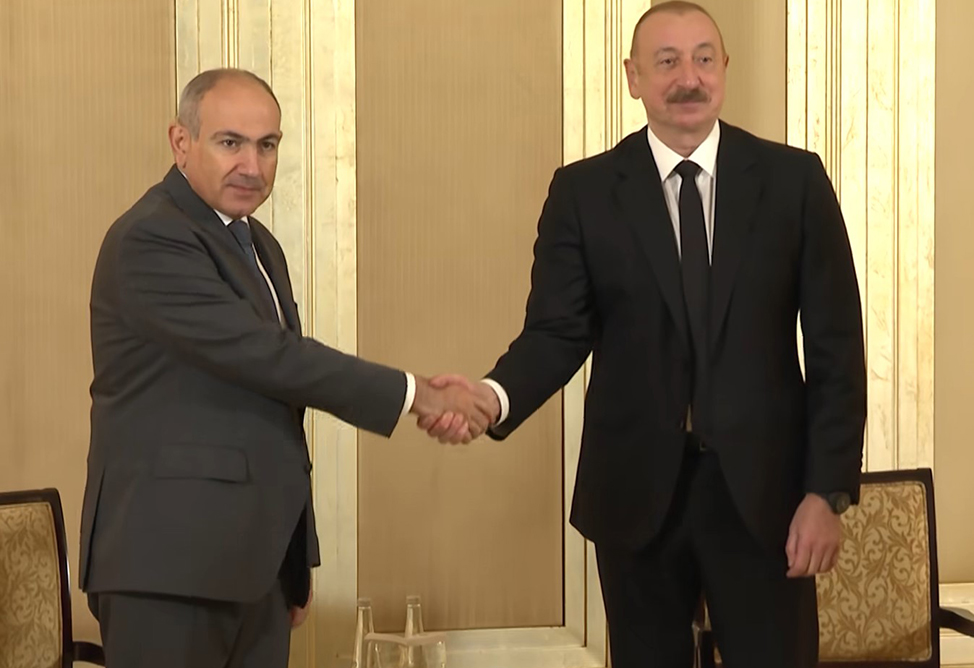IMF says Armenia’s foreign funding and domestic credit pick up, and nonperforming loans decline
04.05.2011,
21:00
Strong post-crisis recovery in the Caucasus and Central Asia (CCA) region is expected to continue in 2011, although at a somewhat slower pace than in 2010, the International Monetary Fund (IMF) said.
YEREVAN, May 4. / ARKA /. Strong post-crisis recovery in the Caucasus and Central Asia (CCA) region is expected to continue in 2011, although at a somewhat slower pace than in 2010, the International Monetary Fund (IMF) said in its Regional Economic Outlook for Caucasus and Central Asia released Tuesday.
Restoring banking system health remains a key priority for the region, the report says. It says in Armenia banks’ profitability is recovering, foreign funding and domestic credit have picked up, and nonperforming loans have declined, the report says.
According to the report, average growth across the region this year is expected to remain strong, at just below 6 percent, compared with 6½ percent last year. Growth will continue to be driven by positive external factors—high commodity prices, the pickup in Russia, and strong growth in China.
The report says also the headline inflation has sharply risen in the CCA, as in other parts of the world Consumer price inflation in the region reached 11 percent on average in February, up from about 6 percent a year ago. This can be explained mainly by the rising cost of food, which makes up more than 50 percent of consumption baskets in the region.
The report says with global food and fuel prices expected to rise by a further 15–18 percent in 2011, inflationary pressures are projected to continue, with headline inflation rising further in the months ahead.
Experience suggests that higher food and fuel prices will eventually pass through into general price inflation, if governments and central banks do not respond. Central banks are already tightening monetary policy, and may need to do so more forcefully to contain inflation. And fiscal policy needs to remain prudent and support anti-inflationary efforts
In Kazakhstan, the Kyrgyz Republic, and Tajikistan, where the share of nonperforming loans remains particularly high, authorities will need to put in place comprehensive resolution strategies. Greater competition would also help develop stronger banking systems, most notably in Tajikistan, Turkmenistan, and Uzbekistan, where directed lending continues to crowd out development of credit to the private sector. Dollarization, which rose with the crisis, remains a risk, and supervisors need greater autonomy, independence, and legal protection to do their jobs properly.
The report recommends that, over the long term, the region’s policymakers should seek to create jobs and reduce poverty by working toward: developing adequate safety nets; increasing the role of the private sector; diversifying economies away from natural resources; achieving greater regional synergies; and improving the business environment through enhanced transparency, governance and institutional quality.
According to 2011 Armenian budget, the economy is expected to grow by 4.6% and the inflation is expected to vary between 4% (±1.5%). -0-
Restoring banking system health remains a key priority for the region, the report says. It says in Armenia banks’ profitability is recovering, foreign funding and domestic credit have picked up, and nonperforming loans have declined, the report says.
According to the report, average growth across the region this year is expected to remain strong, at just below 6 percent, compared with 6½ percent last year. Growth will continue to be driven by positive external factors—high commodity prices, the pickup in Russia, and strong growth in China.
The report says also the headline inflation has sharply risen in the CCA, as in other parts of the world Consumer price inflation in the region reached 11 percent on average in February, up from about 6 percent a year ago. This can be explained mainly by the rising cost of food, which makes up more than 50 percent of consumption baskets in the region.
The report says with global food and fuel prices expected to rise by a further 15–18 percent in 2011, inflationary pressures are projected to continue, with headline inflation rising further in the months ahead.
Experience suggests that higher food and fuel prices will eventually pass through into general price inflation, if governments and central banks do not respond. Central banks are already tightening monetary policy, and may need to do so more forcefully to contain inflation. And fiscal policy needs to remain prudent and support anti-inflationary efforts
In Kazakhstan, the Kyrgyz Republic, and Tajikistan, where the share of nonperforming loans remains particularly high, authorities will need to put in place comprehensive resolution strategies. Greater competition would also help develop stronger banking systems, most notably in Tajikistan, Turkmenistan, and Uzbekistan, where directed lending continues to crowd out development of credit to the private sector. Dollarization, which rose with the crisis, remains a risk, and supervisors need greater autonomy, independence, and legal protection to do their jobs properly.
The report recommends that, over the long term, the region’s policymakers should seek to create jobs and reduce poverty by working toward: developing adequate safety nets; increasing the role of the private sector; diversifying economies away from natural resources; achieving greater regional synergies; and improving the business environment through enhanced transparency, governance and institutional quality.
According to 2011 Armenian budget, the economy is expected to grow by 4.6% and the inflation is expected to vary between 4% (±1.5%). -0-



